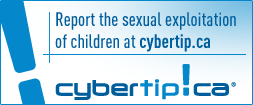Sexual exploitation
The exchange of sex for food, shelter, drugs/alcohol, money and/or approval. Sexual exploitation is not a lifestyle choice – it’s child abuse.
Source: Sacred Lives: Canadian Aboriginal Children and Youth Speak Out About Sexual Exploitation, (Kingsley & Mark, 2000)
Statistics on the sexual exploitation of children and youth
- Approximately 400 children and youth are being sexually exploited on the streets of Winnipeg each year. (statistics include only visible sex trade exploitation).
- 80% of child sexual exploitation is hidden in "gang houses" and "trick pads".
- Thirteen years old is the average age that children reported their first experience of being exploited through the sex trade. Age range is from 8 years - 16 years old.
- 70% – 80% of adults involved in the sex trade were also first exploited under the age of 18.
- 85% - 90% of sexually exploited children/youth are female; 10% - 15% are male.
- 52% were sexually abused as children and 52% were physically abused as children.
- 81% were runaways.
- 33% were homeless.
- 72% were in the care of Child and Family Services.
- 93% had involvement with drugs and alcohol.
- 53% had used alcohol before the age of 12.
- Seven times is the average number of attempts individuals had made trying to escape or leave the sex trade.
- 44% have been treated for an emotional problem by a psychiatrist, psychologist, or counsellor.
- 38% have attempted suicide.
- 63% failed or repeated a grade in school. 77% were suspended from school.
- Average education level is grade 8.
- 70% - 80% of children and youth exploited in Manitoba are of Aboriginal descent.
Sources: Transition, Education, and Resources for Females (TERF) Mentor and Youth Program Evaluation Reports 2005; 2006 Prostitutes and Other Women for Equal Rights (POWER) Evaluation Report, Campbell and Heinrich, 1995.

